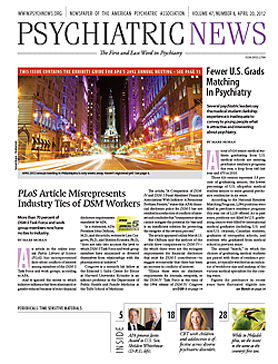The American Academy of Pediatrics (AAP) released an updated version of its clinical report “Neonatal Drug Withdrawal” online January 30. The report was written by Mark Hudak, M.D., and Rosemarie Tan, M.D., Ph.D., along with the AAP’s Committee on Drugs and Committee on Fetus and Newborn.
The report was first presented by the AAP’s Committee on Drugs in 1983 and has been updated once, in 1998, prior to this latest version.
The report outlines steps that clinicians and hospitals can take to identify and monitor infants exposed to opioids and other drugs of addiction. In a statement accompanying the new release, the AAP noted an alarming increase in the number of newborn infants who suffer through withdrawal from a variety of opioid drugs. “Prenatal exposure to these drugs may occur in the setting of maternal abuse of illicit substances (for example, heroin) or in situations where the mother is receiving supervised treatment for addiction with drugs such as methadone or buprenorphine,” the AAP pointed out. “But more and more frequently, infants are being affected by exposure in the womb to prescription painkillers. In many cases, these powerful drugs are being ordered by physicians to treat pain associated with a chronic maternal condition, but sometimes mothers obtain these drugs surreptitiously.”
The report includes an updated “Neonatal Abstinence Scoring System,” adapted from that published by Lorreta Finnegan, M.D., in 1990. Also added in the new edition are several detailed protocols for weaning neonatal patients by using conversion of continuous opioid infusions to enteral methadone and for conversion of midazolam infusion to enteral lorazepam. A referenced chart of doses of drugs used in the treatment of neonatal narcotic withdrawal is also included.
The report updates information from the medical literature about current treatment options for neonatal opioid withdrawal and highlights the need for further research to develop treatments that are safer and more effective than those currently available and that will result in shorter treatment durations and hospital stays.
But the authors note significant gaps in knowledge concerning the optimal treatment strategy (including the criteria for instituting pharmacologic therapy, the drug of first choice, and the strategy for weaning) of infants with neonatal withdrawal. They call for implementation of well-designed randomized, controlled studies that are adequately powered to assess short-term outcomes and to provide for long-term follow-up.
“Reducing the number of cases of neonatal opioid withdrawal will require a partnership of the medical community with government and other health organizations to educate women and providers about this problem, to identify alternative pain-management options during pregnancy, and to eliminate nonprescribed access to powerful painkillers,” said AAP.

Presentations Address Buprenorphine in Pregnancy
APA is a part of the Physicians’ Clinical Support System-Buprenorphine (PCSS-B), a collaborative project with the American Academy of Addiction Psychiatry (AAAP) and the American Osteopathic Academy of Addiction Medicine (AOAAM). Each organization is named in the Drug Addiction Treatment Act of 2000 (DATA 2000) as an organization that can provide training leading to waiver eligibility for physicians who want to offer office-based treatment of opioid dependence in their practices. Since 2001, AAAP, APA, and AOAAM have trained thousands of physicians who have received a waiver that allows them to treat opioid dependence using buprenorphine. Recordings of the following recent presentations that address topics including pregnancy and opioid dependency can be accessed at
www.pcssb.org/educational-and-training-resources/special-topics/ . The site also provides information on the schedule of sessions, as well as archives of all previous webinars presented by APA as a partner organization in the PCSS-B.
February 14, 2012
“Buprenorphine Treatment During Pregnancy,” presented by Marjorie Meyer, M.D., an associate professor of obstetrics and gynecology and director of the Division of Maternal Fetal Medicine at the University of Vermont School of Medicine
December 14, 2010
“Inducting and Stabilizing Opioid-Dependent Pregnant Women on Methadone or Buprenorphine: Current Research and Future Treatment Implications,” presented by Hendree Jones, Ph.D., a professor of psychiatry and of obstetrics and gynecology at Johns Hopkins School of Medicine

